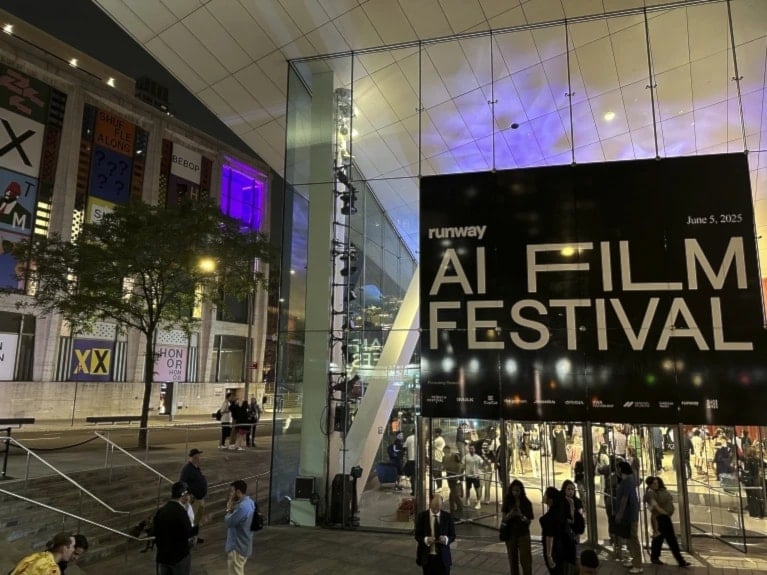AI poses direct threat to UK film industry, warns BFI report
The BFI warns that AI firms are using copyrighted UK scripts without consent, threatening jobs and creative IP in film, TV, gaming, and special effects sectors.
-

Runway's third-annual AI Film Festival kicks off with a screening at Lincoln Center's Alice Tully Hall in New York, June 5, 2025. (AP/Wyatte Grantham-Philips)
The British Film Institute (BFI) has issued a stark warning over what it calls a “direct threat” to the UK screen sector, accusing artificial intelligence companies of exploiting more than 130,000 film and television scripts without consent to train generative models. The practice, it says, risks undermining intellectual property rights, disrupting creative jobs, and damaging the future of the country’s £125 billion creative economy.
In a detailed report published in collaboration with Goldsmiths, Loughborough, and Edinburgh universities, the BFI outlines how the widespread use of copyrighted material to train AI without permission or compensation has alarmed rights holders across the film, TV, video game, and visual effects industries.
The report identifies the unauthorized use of intellectual property for AI training as the “primary issue” facing the UK screen sector. Many in the industry are calling for new legislation to enforce an opt-in regime, compelling AI developers to obtain licenses before using creative content.
“AI offers significant opportunities for the screen sector, such as speeding up production workflows, democratising content creation and empowering new voices,” said Rishi Coupland, BFI’s director of research and innovation. “However, it could also erode traditional business models, displace skilled workers, and undermine public trust in screen content.”
AI’s presence in the industry has already drawn attention through its use in high-profile projects, such as de-aging actors and refining accents, as seen in Adrien Brody’s The Brutalist, but concerns about copyright infringement and ethical boundaries surrouning AI persist.
Junior jobs at risk as automation expands
While AI is expected to increase production efficiency, the BFI warns of serious job losses, especially among junior and entry-level roles. Tasks like writing, translation, basic animation, and technical effects are increasingly automated, leaving new entrants with fewer opportunities to gain hands-on experience.
“AI’s ability to automate tasks raises fears of job losses, particularly for junior or entry-level positions,” the report states. “Training and upskilling are seen as essential to prepare the workforce for AI integration.”
Yet the report finds a “critical shortfall” in current training infrastructure. Most AI education in the UK screen sector is informal, and many freelancers lack access to resources that would allow them to adapt to the changing landscape.
The British Film Institute, along with stakeholders in the UK creative economy, is urging the government to legislate protections that would give creators more control over how their work is used in AI development. An official review of AI and copyright legislation is underway.
NAFSA and other networks representing creative professionals have warned that unregulated AI use could destabilize an already vulnerable employment base while jeopardizing the sector’s economic contribution, particularly in areas such as London, which is the world’s second-largest hub for visual effects after Mumbai.
Despite the challenges, the BFI report acknowledges AI’s potential to lower creative barriers. “This could empower a new wave of British creators to produce high-quality content with modest resources,” it notes.
The UK is home to more than 13,000 creative technology firms, including over 4,000 specializing in applications for film and gaming. As the screen industry braces for further disruption, the BFI’s call for regulatory clarity and strategic workforce investment signals a push to protect the sector from unchecked AI development.

 4 Min Read
4 Min Read








